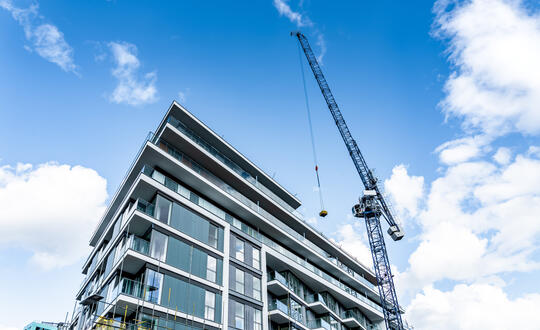
A new mandatory occurrence reporting system has been established through secondary legislation, under the umbrella of the Building Safety Act 2022.
The secondary legislation in question is the Building (Higher-Risk Buildings Procedures) (England) Regulations 2023 (Regulations), which relates to higher risk buildings (HRBs) in England.
Under it, "safety occurrences" relating to the structural integrity or fire safety of HRBs which could potentially pose a serious risk to people, must be reported to the Building Safety Regulator (BSR) during the construction phase.
Overview of the new mandatory occurrence reporting system
In brief, before construction begins, the principal dutyholders must establish a system that enables "reporting persons" to promptly report every safety occurrence to the principal dutyholders. Here:
- The reporting persons are any designer or contractor (including the principal designer or contractor) and anyone else who is a periodic visitor on the site, and
- The principal dutyholders are the principal contractor (or sole contractor) and principal designer (or sole or lead designer).
Then during the construction phase, the principal dutyholders must maintain this system, and report any safety occurrences to the BSR.
In appointing the principal dutyholders, the client must take "all reasonable steps" to satisfy itself that those it appoints can fulfil the legislative requirements in relation to the mandatory occurrence reporting system and reporting to the BSR.
What occurrences need to be reported?
Every safety occurrence to be reported to the BSR.
Broadly, under the Regulations, a safety occurrence is either:
- An aspect of the design (if built) or
- An incident or situation relating to the structural integrity or fire safety of an HRB that would (when the building is used) be likely to present a risk of a significant number of deaths, or serious injury to a significant number of people.
As well as reporting safety occurrences, principal dutyholders must also ensure there is an "appropriate frequency of inspections" of the works (including design work) for any safety occurrences during the construction phase.
How to report to the BSR
A principal dutyholder must report a safety occurrence when they become aware of it, notifying the BSR as quickly as possible.
They must then provide a written report to the BSR within 10 days of the principal dutyholder becoming aware of the safety occurrence.
This written report to the BSR should include:
- The date and time of the safety occurrence
- The address of the site where the safety occurrence happened
- The name and contact details of the principal dutyholder who is making the report
- The type and details of the safety occurrence, including the nature of the risk, and
- Details of the remedial measures or mitigation carried out.
Overlap with other parts of the new building safety regime
It is also important to note that the new mandatory occurrence reporting system will not operate in a silo, and will interact with other parts of the new building safety regime, such as:
- Gateways - a "mandatory occurrence reporting plan" is submitted to the BSR (or in some cases requestable by the BSR) as part of the Gateway 2 building control approval application. It also forms part of the Gateway 3 completion certificate application.
- Change control - if there are any variations caught under the new change control regime for HRBs, the change control log would need to include the impacts (if any) of the proposed changes on the mandatory occurrence reporting system. This could also be considered by the BSR in making its decision on whether to approve a change control application.
- Golden thread – the golden thread should include copies of any mandatory occurrence reports to the BSR, as soon as practicable after the report is provided.
Further guidance available
To help the industry get on top of these changes, the Health and Safety Executive (HSE) has published further guidance on reporting a mandatory occurrence. This provides helpful clarifications, including:
- "Mandatory occurrences must always be reported, even if the cause of the incident or risk is immediately fixed"
- "If you have a duty to make a mandatory occurrence report, you must not rely on others to make the report. If you know a report has already been made, you can decide not to make a report, but you should get a copy of it"
- "If you have a duty to make a mandatory occurrence report and you knowingly fail to make a report, you can be subject to enforcement action including prosecution", and
- "We’ll review the report and decide if any further action is needed. Action may involve: … starting an investigation… There are no charges for making a mandatory occurrence report, but investigations are chargeable".
For more on building safety, visit our Building Safety Hub or talk to us.
This article is for general information only and reflects the position at the date of publication. It does not constitute legal advice.





